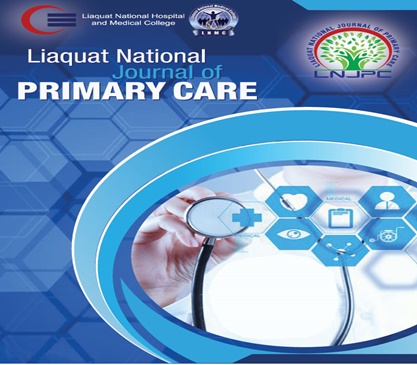Original Article
Public Health Proficiency, Social Responsibility, and Applied Learning of Medical Students and Fresh Graduates: A Cross-Sectional Study
Abstract
-
Background: The relevance of public health proficiency, social responsibility, and applied learning about the subject, particularly concerning treating, preventing, and managing chronic illness, has increased globally.
-
Objective: The objective of the current study was to assess the public health proficiency, social responsibility, and applied learning of medical students and Fresh Graduates.
-
Methods: A cross-sectional study was conducted among 300 medical students and house officers at a private teaching hospital in Rawalpindi from July to December 2022, selected via convenience sampling technique. A pre-validated questionnaire was used to assess public health proficiency, social responsibility, and applied learning among study participants.
-
Results: Out of the total (n = 300) participants, 234 (78%) were medical students, 66 (22%) were house officers, and the majority were female, with 192 (64%) among student respondents. 53 (18%) of the respondents had adequate scores regarding PH proficiency, social responsibility, and applied learning, while 247 (82%) had poor scores. The majority had poor public health proficiency. An independent t-test shows no statistically significant differences between the group scores (p = 0.333). A chi-squared analysis was used to determine the relationship between PH proficiency, a personal or family history of NCDs, and a family member working in the public health domain; the results revealed insignificant differences between these variables and proficiency scores.
-
Conclusion: The study has shown that a significant number of medical students and graduates do not have much knowledge about public health skills, social responsibility, and applied learning about the subject.
- Keywords: Medical students, Public health proficiency, Community medicine.
Back to All Articles

